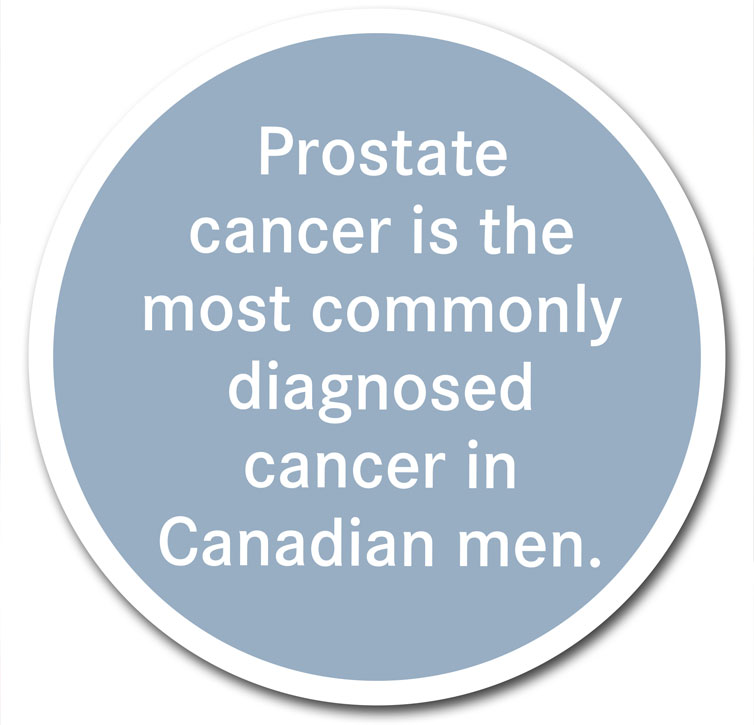…on the spread of cancer
Prostate cancer is the most commonly diagnosed cancer in Canadian men, affecting 1 in 6 during their lifetime. “We hear a lot about cancer and diagnosis, but when we think about who succumbs to the disease, 90 percent of patients who die of cancer have metastasis. In fact, no man has ever died of prostate cancer that stayed in his prostate.” says Dr. John Lewis, a prostate cancer researcher at the University of Alberta.
men, affecting 1 in 6 during their lifetime. “We hear a lot about cancer and diagnosis, but when we think about who succumbs to the disease, 90 percent of patients who die of cancer have metastasis. In fact, no man has ever died of prostate cancer that stayed in his prostate.” says Dr. John Lewis, a prostate cancer researcher at the University of Alberta.
The movement of tumour cells is part of the process leading up to metastasis, and Dr. Lewis’ team has pioneered technologies that allow the video capture of the spread of tumour cells, giving them a window into how the cells move around the body in real time. Using this technology, they have discovered a biochemical switch that occurs on cancerous cells before they start to move.
Their findings hold exciting promise for future cancer treatments, making it possible to literally flip the switch to halt metastasis in its tracks. But in the short term, this knowledge is enabling the development of new, more accurate tests for prostate cancer. Patients can have either indolent (the slow-growing type) or aggressive prostate cancers. Indolent is the more common of the two, and the type that might not ever kill, or even need to be treated. It’s the cancer that many men die with, and not from.
“We are potentially over-treating men with prostate cancer. A better test would allow us to focus aggressive treatments on those patients who need it and avoid the side effects for those patients who don’t.”
Over the next five years, Lewis and his clinical counterparts at the Alberta Prostate Cancer Research Initiative (APCaRI) will enroll more than 9,000 patients in a clinical trial to validate their new test.
Photo above: John Lewis, Ph.D. is the Frank and Carla Sojonky Chair in Prostate Cancer Research and is an Associate Professor in the Department of Oncology at the University of Alberta.














